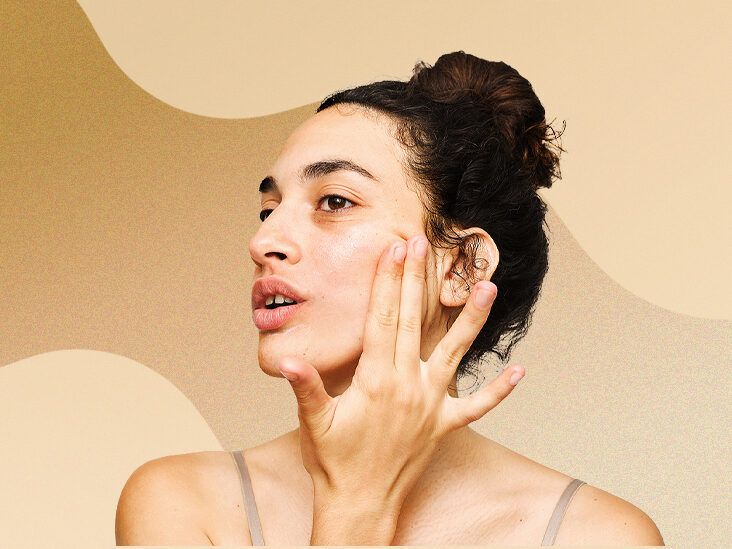How Do We Moisturize Our Skin Without Any Moisturizer?
Moisturizing your skin is essential to maintaining its health, softness, and resilience. However, many people prefer to avoid store-bought moisturizers due to allergies, sensitivities, or personal choices. Fortunately, there are natural ways to keep your skin hydrated without relying on commercial moisturizers.
Why Is Moisturizing Important?
The skin is the body's largest organ, and keeping it hydrated helps maintain its protective barrier. When skin lacks moisture, it can become dry, itchy, and more prone to irritation. Hydrated skin also looks healthier and ages more gracefully.
If you want to keep your skin moisturized without traditional lotions or creams, here are some effective, dermatologist-approved alternatives.
1. Drink Enough Water
Hydrating from the inside out is the best way to keep your skin naturally moisturized. When your body is dehydrated, your skin loses its plumpness and elasticity, leading to dryness.
How Much Water Should You Drink?
- Men: About 3.7 liters (125 ounces) per day
- Women: About 2.7 liters (91 ounces) per day
(Source: Cleveland Clinic)
Pro Tip:
If you struggle with drinking enough water, try:
- Infusing it with lemon, cucumber, or mint
- Eating water-rich foods like watermelon, cucumber, and oranges
- Setting reminders to sip throughout the day
2. Use Natural Oils
Many plant-based oils act as excellent moisturizers by locking in hydration. They mimic the skin’s natural lipids, preventing moisture loss.
Best Oils for Skin Hydration:
- Coconut oil – Rich in fatty acids; great for dry skin
- Olive oil – Packed with antioxidants and vitamins A & E
- Jojoba oil – Mimics skin’s natural sebum, non-greasy
- Almond oil – Lightweight and soothing
How to Use:
- Apply a few drops of oil to damp skin after washing.
- Gently massage in circular motions.
- Let it absorb naturally (no need to rinse).
(Source: Healthline)
3. Eat Foods Rich in Healthy Fats
Diet plays a crucial role in skin hydration. Healthy fats strengthen the skin barrier and keep it supple.
Best Foods for Skin Hydration:
- Avocados – High in vitamin E and monounsaturated fats
- Nuts & Seeds – Almonds, walnuts, and chia seeds provide essential fatty acids
- Fatty Fish – Salmon, mackerel, and sardines contain omega-3s that support skin elasticity
- Dark Chocolate – Contains flavonoids that improve skin hydration
4. Use Aloe Vera
Aloe vera gel is a natural humectant, meaning it attracts moisture from the air into your skin. It’s soothing, lightweight, and rich in vitamins.
How to Use:
- Extract fresh gel from an aloe vera leaf.
- Apply it to your skin and leave it on for 15–20 minutes.
- Rinse with lukewarm water.
This method is particularly great for sensitive or sunburned skin.
5. Take Short, Lukewarm Showers
Hot water strips away natural oils, making skin drier. Lukewarm water helps maintain the skin's natural moisture balance.
Shower Tips for Hydrated Skin:
- Keep showers under 10 minutes.
- Use a mild, fragrance-free soap.
- Pat skin dry instead of rubbing it harshly.
6. Exfoliate Gently
Dead skin cells prevent moisture from being absorbed properly. Gentle exfoliation allows your skin to absorb hydration more effectively.
Best Natural Exfoliators:
- Oatmeal – Soothing and gentle
- Honey & Sugar Scrub – Hydrating and lightly abrasive
- Coffee Grounds – Rich in antioxidants
Use an exfoliant 1–2 times a week to maintain smooth, hydrated skin.
7. Use a Humidifier
Dry indoor air can pull moisture from your skin. A humidifier helps by adding moisture to the air, especially in winter months.
- Keep humidity levels between 40–60%.
- Place a humidifier in your bedroom for overnight hydration.
8. Wear Breathable Fabrics
Tight, synthetic clothing can trap sweat and irritate dry skin. Instead, choose fabrics that allow your skin to breathe.
Best Fabrics for Healthy Skin:
- Cotton – Soft and non-irritating
- Silk – Naturally retains moisture
- Linen – Lightweight and breathable
9. Avoid Harsh Skincare Products
Many commercial skincare products contain alcohol, sulfates, and synthetic fragrances that dry out the skin.
Ingredients to Avoid:
- Alcohol (denatured, SD alcohol, isopropyl alcohol)
- Sodium Lauryl Sulfate (SLS)
- Parabens
Instead, opt for fragrance-free and hypoallergenic skincare products.
Final Thoughts
Keeping your skin hydrated without commercial moisturizers is possible by focusing on hydration, diet, and natural skincare alternatives. Implement these tips consistently for healthy, glowing skin.
Dr. Pretty Singla, a trusted dermatologist in Gurugram, emphasizes the importance of holistic skin hydration. If you have persistent dry skin or other skin concerns, you can consult her at Pretty Skin Clinic or visit her website: https://prettyskin.in.
Disclaimer:
The information provided is for informational purposes only and does not constitute medical advice. Readers should consult with a qualified healthcare professional for diagnosis and treatment.

Comments
Post a Comment